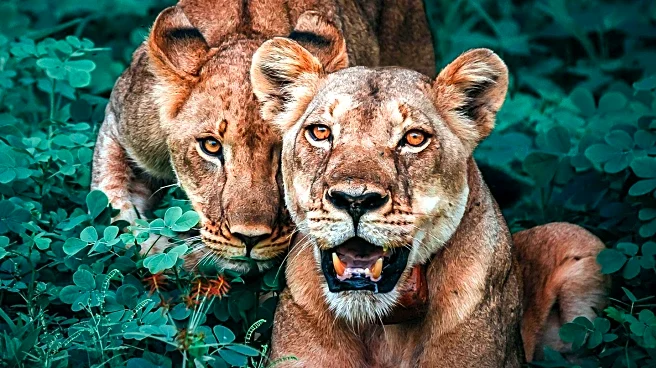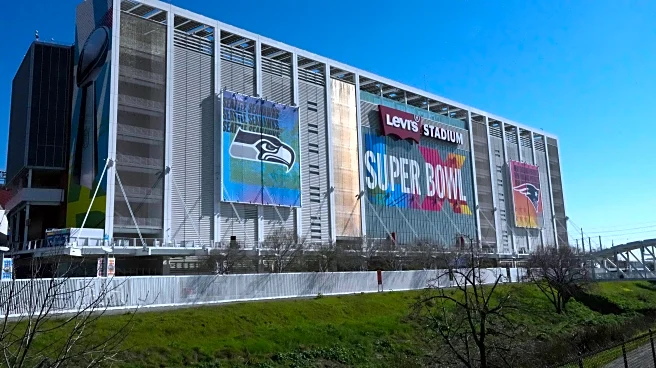What's Happening?
Kamo Wildlife Sanctuary in Whangarei, New Zealand, has announced the euthanization of its elderly lions due to financial difficulties. The sanctuary, which recently closed, stated that the decision was made by the property owners, Bolton Equities, as there
were no viable options left for the care of the lions. Two lions, Imvula and Sibili, were euthanized due to serious health conditions that were untreatable. The sanctuary's remaining five lions are reportedly in good health and continue to receive care. Offers to purchase the facility and continue caring for the lions have been received, providing a glimmer of hope for their future.
Why It's Important?
The closure of Kamo Wildlife Sanctuary and the euthanization of its lions highlight the challenges faced by wildlife sanctuaries in maintaining operations amid financial constraints. This situation has drawn international attention, including from the United States, with individuals offering financial assistance to rescue the animals. The sanctuary's closure underscores the need for sustainable funding and support for wildlife conservation efforts. The potential sale of the facility could ensure continued care for the remaining lions, emphasizing the importance of investment in wildlife preservation.
What's Next?
The sanctuary is exploring options for the sale of the facility, with interested parties expressing a desire to continue caring for the lions. The timeframe for these negotiations is short, and the situation remains uncertain. The sanctuary's former operator, Janette Vallance, has emphasized the priority of the animals' wellbeing and is hopeful for a positive outcome. The future of the sanctuary and its lions depends on securing a buyer willing to invest in the facility and its operations.
Beyond the Headlines
The ethical considerations surrounding the euthanization of animals in sanctuaries due to financial issues raise questions about the responsibilities of private equity firms in wildlife conservation. The situation at Kamo Wildlife Sanctuary may prompt discussions on the need for regulatory frameworks to ensure the welfare of animals in privately owned sanctuaries. Additionally, the emotional impact on those involved in the care of these animals highlights the human dimension of wildlife conservation challenges.















